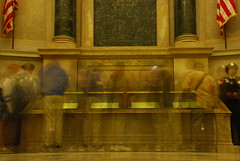Endowed with wealth, brains, and good looks, Emma Woodhouse (twenty-years old) busies herself with other peoples’ lives as she -thinking herself worldly and clever- goes about scheming and conjuring up romantic liaisons. But it will turn out that she’s neither worldly nor clever, but naïve! And that in the end the only love match that really matters is her own.
Is Emma a beauty?
Dialogue supplies an immediate image of Emma. In reply to Mrs. Weston’s question: “She is loveliness itself. Mr. Knightley, is not she?” Mr. Knightley responds:
“I have not a fault to find with her person,” he replied. “I think her all you describe. I love to look at her; and I will add this praise, that I do not think her personally vain. Considering how handsome she is, she appears to be little occupied with it; her vanity lies another way.”
Are we reading a mystery novel?
From the very beginning we can see that neither beauty nor vanity seem to be the theme of the story but-meddling.
When Emma’s governess-companion marries and leaves the Woodhouse household, Emma finds herself on her own; that is without a female voice of wisdom. Soon, she befriends a 17-years old illegitimate girl named Harriet, taking upon herself the duties of a matchmaker.
Though Harriet is a sweet girl, she isn’t so well-read or bright. Emma has her own opinion of her:
She had always wanted to do everything, and had made more progress, both in drawing and music, than many might have done with so little labour as she would ever submit to. She played and sang — and drew in almost every style; but steadiness had always been wanting.
]]>
Social hierarchies
Next, Emma prevents Harriet from marrying farmer Robert Martin, who though decent, Emma thinks he’s ‘beneath’ her. The novel depicts the British social system of hierarchies and inequalities, where titles of nobility and the landed gentry are the regents of the majority of the population.
Intrigues, conspiracies, and much cleverness fill Emma’s head as she cooks up schemes upon schemes to guide the docile Harriet. For this Emma proclaims her maxim: “I lay it down as a general rule, Harriet, that if a woman doubts as to whether she should accept a man or not, she certainly ought to refuse him. If she can hesitate as to “Yes,” she ought to say “No” directly.'”
Having formed an opinion of Emma, at this point, readers can see how misguided she is.
Emma’s father is a feeble old man given to whining and wishing everyone to see the world as he himself sees it. Although he’s a benign character, he proves incapable of giving sound counseling to his daughter. So father and daughter agree, “That is the case with us all, papa. One half of the world cannot understand the pleasures of the other.”
To all of Emma’s interventions, Mr. Knightley -a man of reason, common sense, and much nobility of heart- disapproves, and once in a while warns Emma of her meddling. When Emma goes beyond her childish trickery and insults the town’s spinster, Miss Bates, Mr. Knightley reprimands Emma, causing her to realize that she had turned into a selfish and careless brat. Much self-knowledge will come to Emma from this episode.
Who are Jane Fairfax and Frank Churchill?
The mysterious characters Frank Churchill and Jane Fairfax add much thickness to the plot, which in some parts reads like a detective novel. The interaction between Emma and Frank and Jane helps Emma grow up and find a spiritual center. From Frank Churchill Emma learns deception and from Jane Fairfax that there are worthy competitors in this world.
When Harriet tells her that she is in love with a man of a higher social standing and that he is being corresponded, Emma believes that man to be Mr. Knightley! Expecting to be told that Knightley will confirm his love for Harriet, she’s awakened fully to the pangs of love when he -instead- declares his love for her.
And all is well that ends well: Harriet marries Mr. Martin and Emma Mr. Knightley.
To each its own
Although I admire Jane Austen’s novels, I cannot help but to cringe at the British caste system that she describes. Titles of nobility, hierarchies, landed gentry, inequality, advantages over the common people, and so forth are all in my view detestable.
The founding fathers of the United States of America wrote in the Constitution: The constitution of the United States provides that no state shall “grant any title of nobility; and no person can become a citizen of the United States until he has renounced all titles of nobility.”
So, let’s keep it that way.
Retired. Former investment banker, Columbia University-educated, Vietnam Vet (67-68).
For the writing techniques I use, see Mary Duffy’s e-book: Sentence Openers.
To read my book reviews of the Classics visit my blog: Writing To Live
Article from articlesbase.com
Related The Constitution Articles


